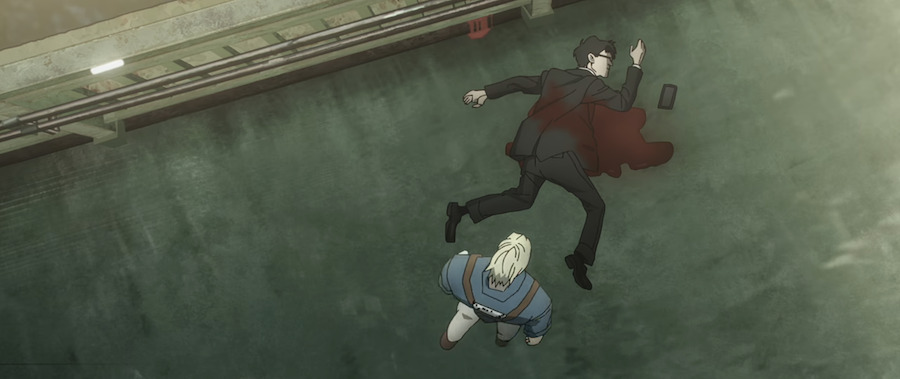In this article, I will explain Japanese grammar and vocabulary based on Nanami’s line “ナメやがって”. Let’s have fun learning Japanese through Jujutsu Kaisen!
The Basic Information of The Line
The basic meaning
in Japanese: “ナメやがって”
in Hiragana: “なめやがって”
in Romaji: “Nameyagatte”
Meaning: “How dare you look down on us”
The situation in which the line was spoken

This is a line from Nanami Kento in Jujutsu Kaisen during the Shibuya Incident. Nanami returned to his comrades to share information about the enemy. However, when he arrived, he found his comrades attacked and lying wounded. Seeing this, Nanami became furious and muttered to himself, ‘How dare you look down on us’.
Grammatical Structure
ナメる (なめる / nameru)
This is a verb that means “to make light of” or “to underestimate.” It has connotations of looking down on someone or not taking them seriously.
やがる (yagaru)
This is an auxiliary verb in Japanese. When attached to the stem of another verb, it adds a sense of disdain or contempt towards the subject. It makes the verb more coarse and can indicate the speaker’s annoyance or anger towards the action.
って (tte)
This is a colloquial quoting particle, which can be thought of as a casual way to represent or mimic speech. In this context, it emphasizes the previous part of the statement.
When combined, “ナメやがって” carries a tone of strong annoyance or anger and can be roughly translated to “You dare to underestimate me!” or “Are you mocking me?”. The phrase is used in informal settings and is quite strong in its tone.
Usage in everyday conversation
While “ナメやがって” is direct and confrontational, in everyday conversation, you might hear toned-down or slightly modified versions to make the sentiment less aggressive:
ナメてるの? (Nameteru no?): This is a softer way to ask “Are you underestimating me?” or “Are you making fun of me?”
ナメないでね (Name naide ne): A gentler request that means “Don’t make light of me” or “Don’t look down on me.”
It’s essential to understand the nuance of the phrase and adjust its usage based on the setting and the relationship with the listener. Using “ナメやがって” with someone you’re not close to, or in a formal setting, might come off as very rude.










Related articles